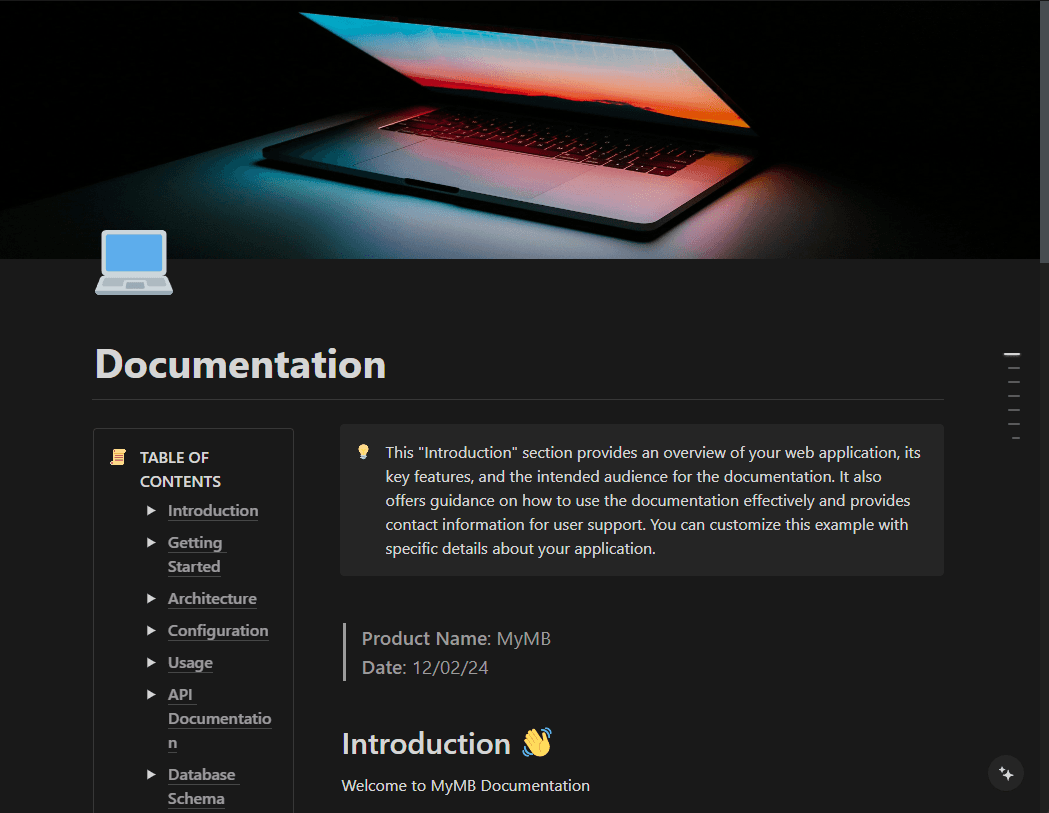How to Gain in Productivity with Notion as a Software Engineer ?
If you're anything like me, managing multiple projects, deadlines, and a seemingly endless list of tasks can be a real challenge. But don't worry, I've got your back. In this guide, I'll show you how to gain in productivity with Notion, a tool that's become my go-to for keeping everything organized and efficient. Let's dive in and explore how you can boost your productivity using Notion!

Notion Productivity as a Software Engineer
Notion is a powerhouse of a tool that blends note-taking, project management, and collaboration features into one seamless platform. Here’s how you can use Notion to enhance your productivity as a software engineer.
1. Setting Up Your Workspace
Creating a Structured Workspace:
- Project Databases: Start by creating databases for your projects. These databases help you track progress, set deadlines, and manage your workload. Notion's customizable views let you switch between Kanban boards, calendars, and lists, making it easy to find the layout that works best for you.
- Task Lists: Organize your tasks with to-do lists, and use tags or status indicators to prioritize them. This way, you can always keep an eye on what's most important.
- Personal Dashboard: Design a personal dashboard that integrates all your tasks, projects, and key notes. Customize it with widgets and embeds to fit your workflow perfectly.
2. Organizing Your Code and Documentation
Centralized Documentation:
- Code Snippets: Store reusable code snippets in a dedicated database. This makes it super easy to access and reuse them across different projects, saving you loads of time.
- Technical Documentation: Keep all your project documentation in one place. Use rich text, code blocks, and embeds to create detailed and organized documentation that’s easy to navigate.
Version Control Integration:
- GitHub/GitLab Integration: Sync your repositories with Notion by embedding them directly into your pages. This way, you can access code and track changes without switching contexts.
3. Managing Projects and Collaborations
Project Management:
- Agile Boards: Manage your sprints and track task progress using Kanban boards. Customize columns to reflect your workflow stages, making it easy to see where everything stands at a glance.
- Milestones and Deadlines: Set milestones for your projects and assign deadlines to tasks. Use reminders to stay on track and ensure timely completion.
Collaboration:
- Team Workspaces: Create shared workspaces for team projects. This allows for seamless collaboration, real-time updates, and efficient communication.
- Meeting Notes: Keep all your meeting notes in one place. Use templates to structure meeting agendas and action items, ensuring every meeting is productive and nothing falls through the cracks.
4. Enhancing Personal Productivity
Task Management:
- Daily To-Dos: Plan your day with daily to-do lists. Prioritize tasks and use checkboxes to mark completed items. This keeps you focused and organized throughout the day.
- Pomodoro Technique: Implement the Pomodoro Technique using timers and task lists within Notion. This method helps maintain focus and productivity during work sessions.
Learning and Skill Development:
- Learning Tracker: Keep track of your learning progress with a dedicated database. Store resources, notes, and progress on new skills or technologies you’re picking up.
- Project Ideas: Maintain a list of project ideas and side projects. This encourages continuous learning and experimentation, keeping your skills sharp and your mind engaged.
5. Automation and Integrations
Automating Workflows:
- Notion API: Use the Notion API to automate repetitive tasks. Integrate with tools like Zapier or Integromat to streamline your workflows and save time.
- Templates: Utilize and create templates for recurring tasks, project setups, and documentation. This saves time and ensures consistency across your projects.
Integrations:
- Third-Party Apps: Integrate Notion with other productivity tools like Slack, Trello, or Google Calendar. This centralizes your work and improves efficiency.
- Custom Scripts: Write custom scripts to extend Notion’s functionality. Use APIs to automate data entry or generate reports, further boosting your productivity.
Conclusion: Maximizing Productivity Gains with Notion
Gaining in productivity with Notion as a software engineer involves setting up a well-structured workspace, organizing your code and documentation, managing projects efficiently, enhancing personal productivity, and leveraging automation. By integrating these strategies, Notion becomes an invaluable tool that not only organizes your work but also boosts your overall efficiency.
Embrace Notion’s versatility to transform how you manage your tasks, collaborate with your team, and grow as a software engineer. Trust me, once you start using Notion effectively, you’ll wonder how you ever managed without it. Happy coding and organizing!